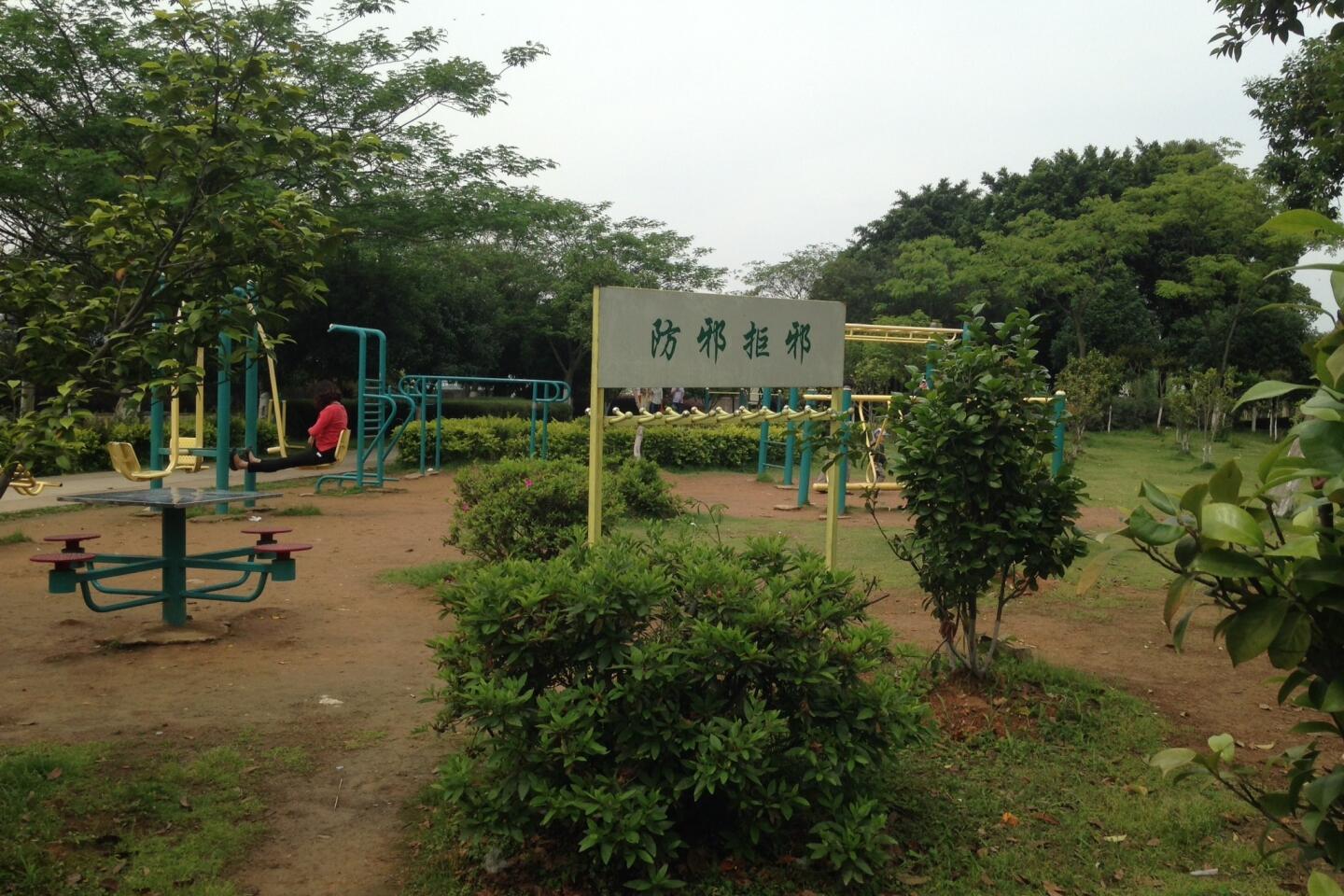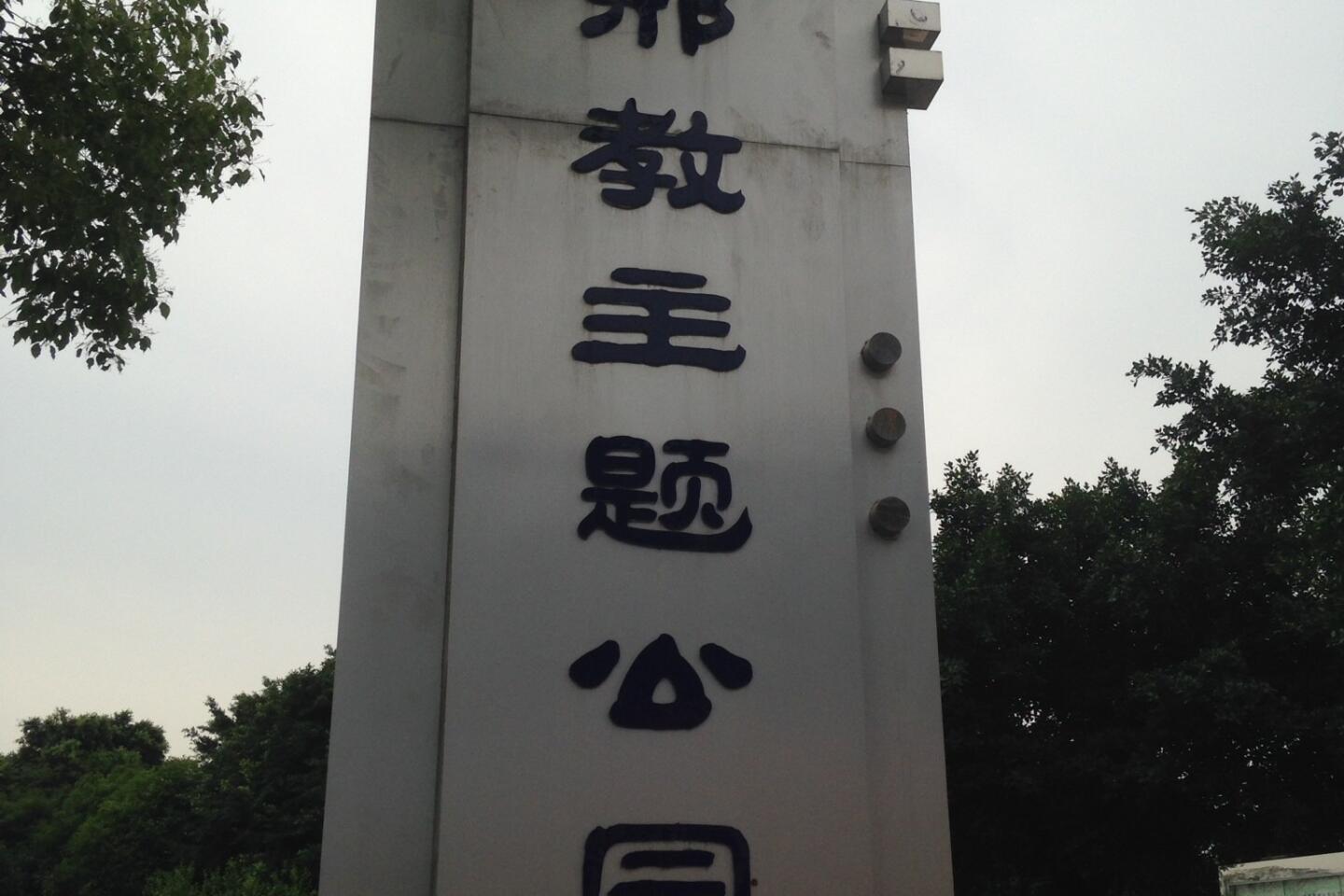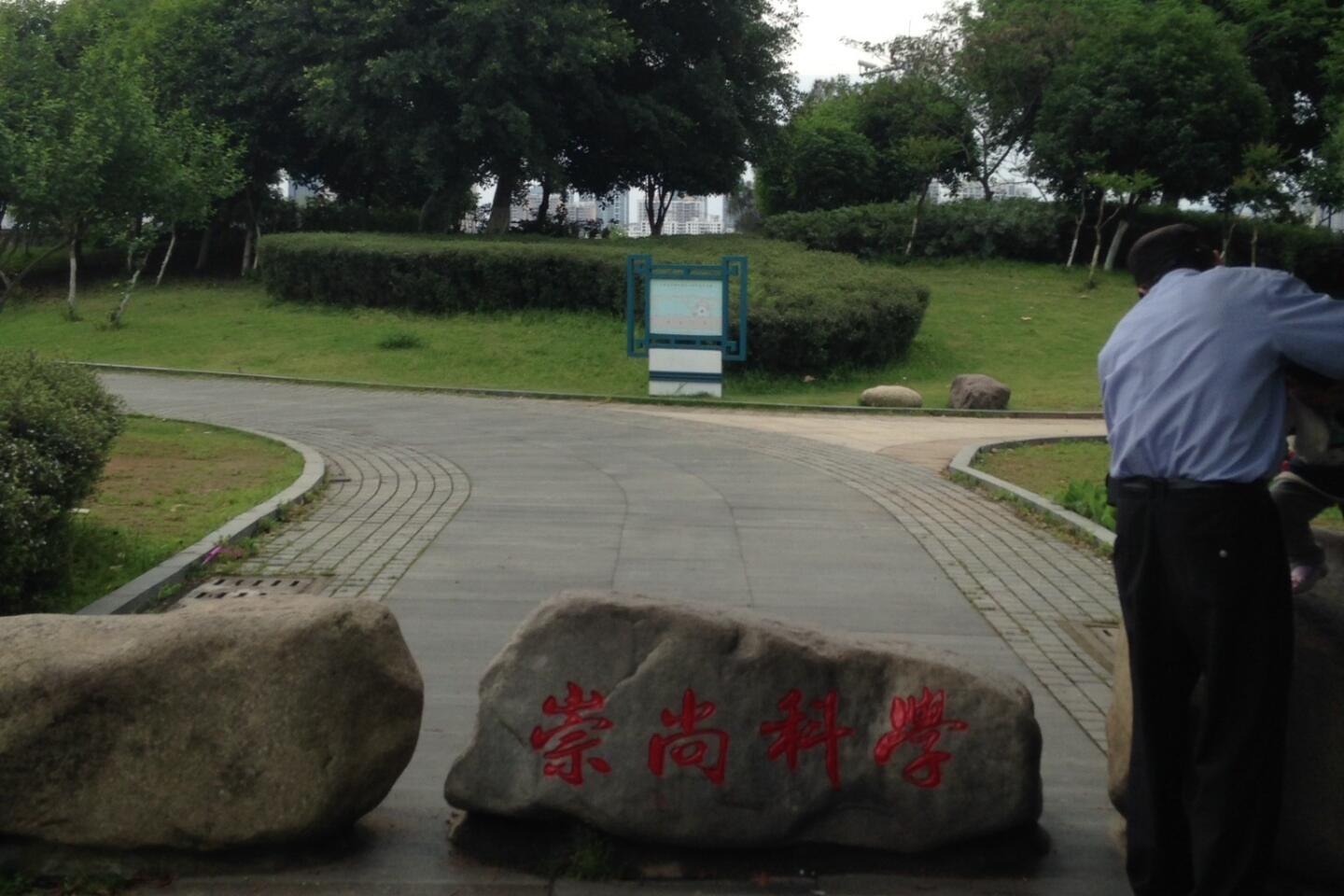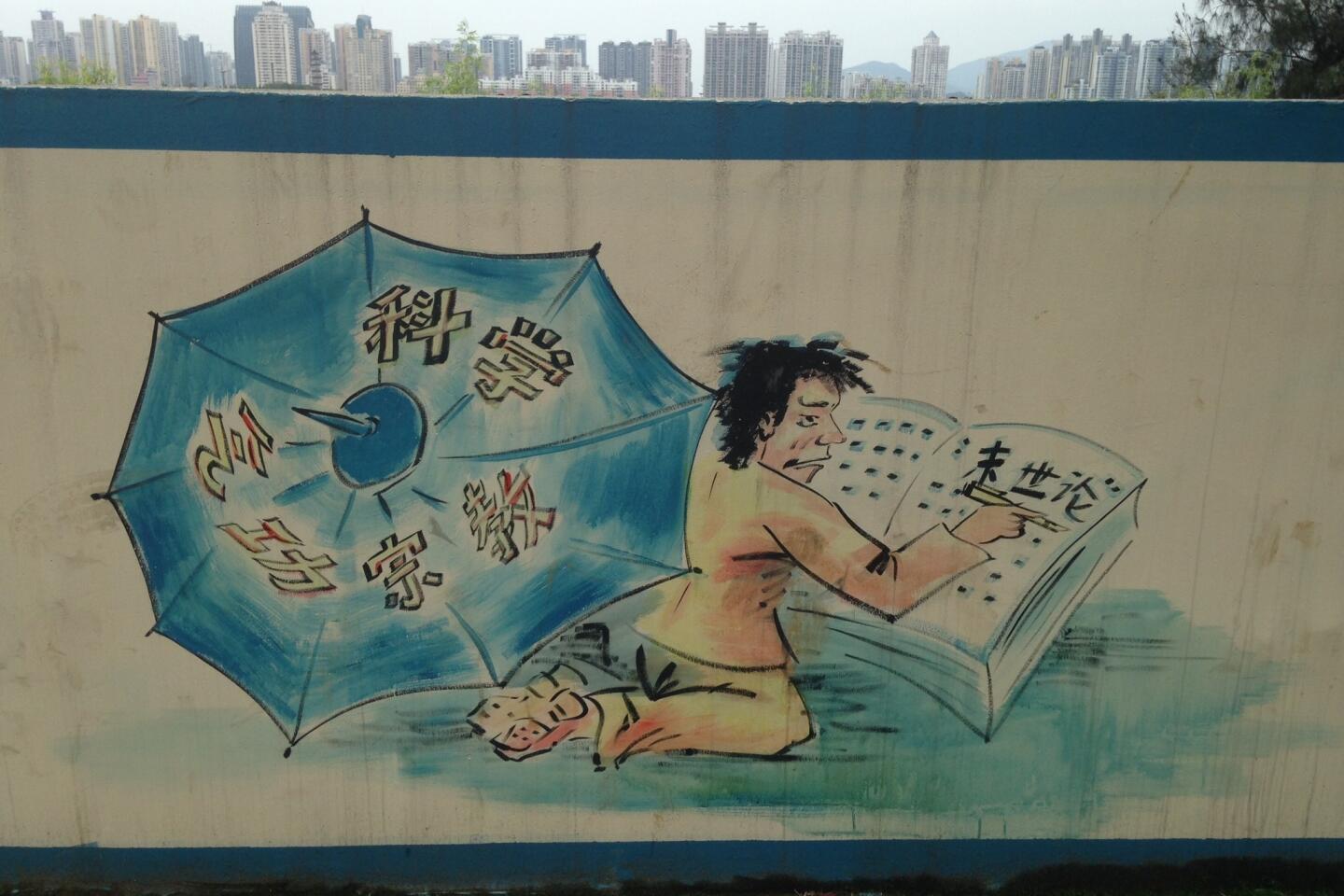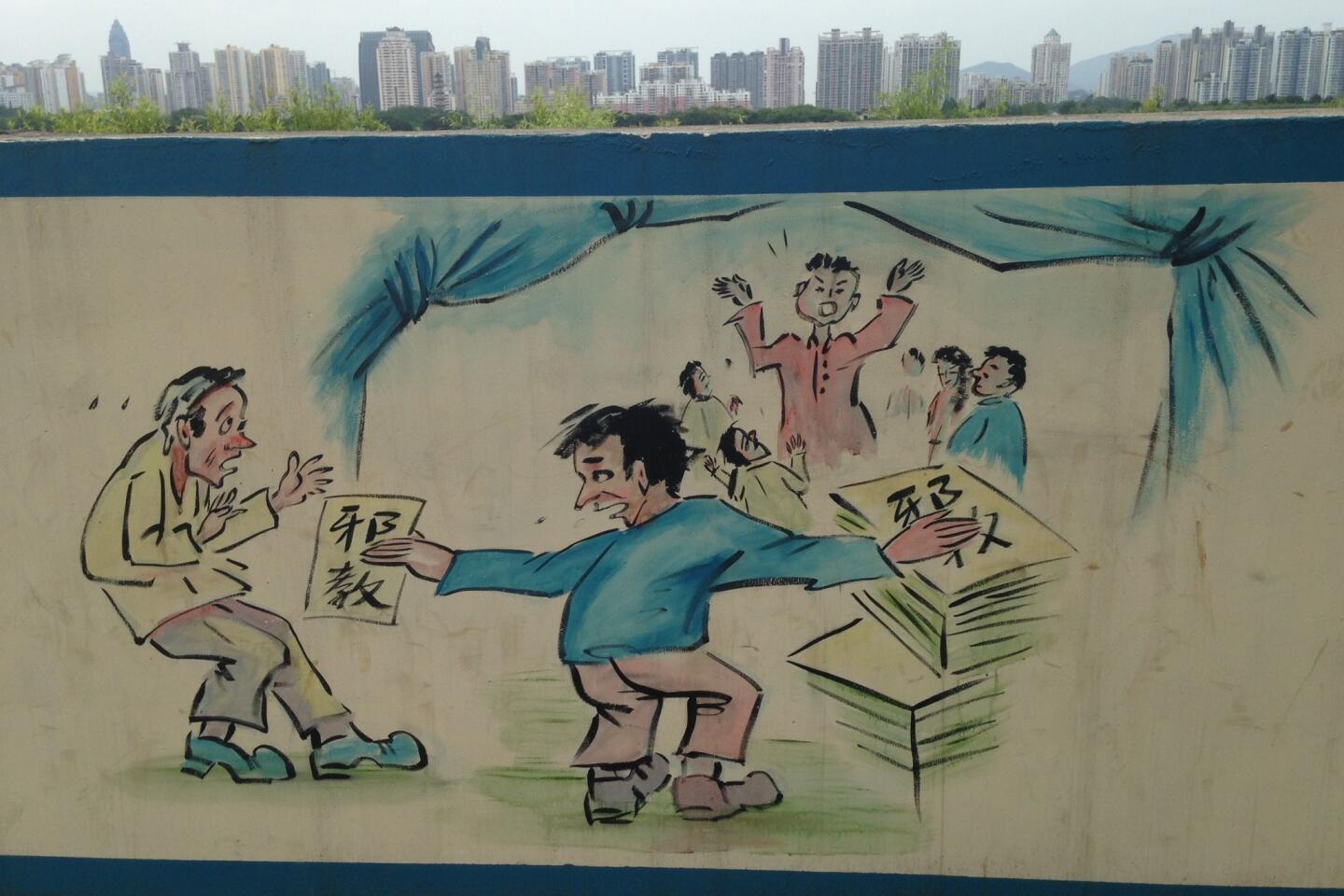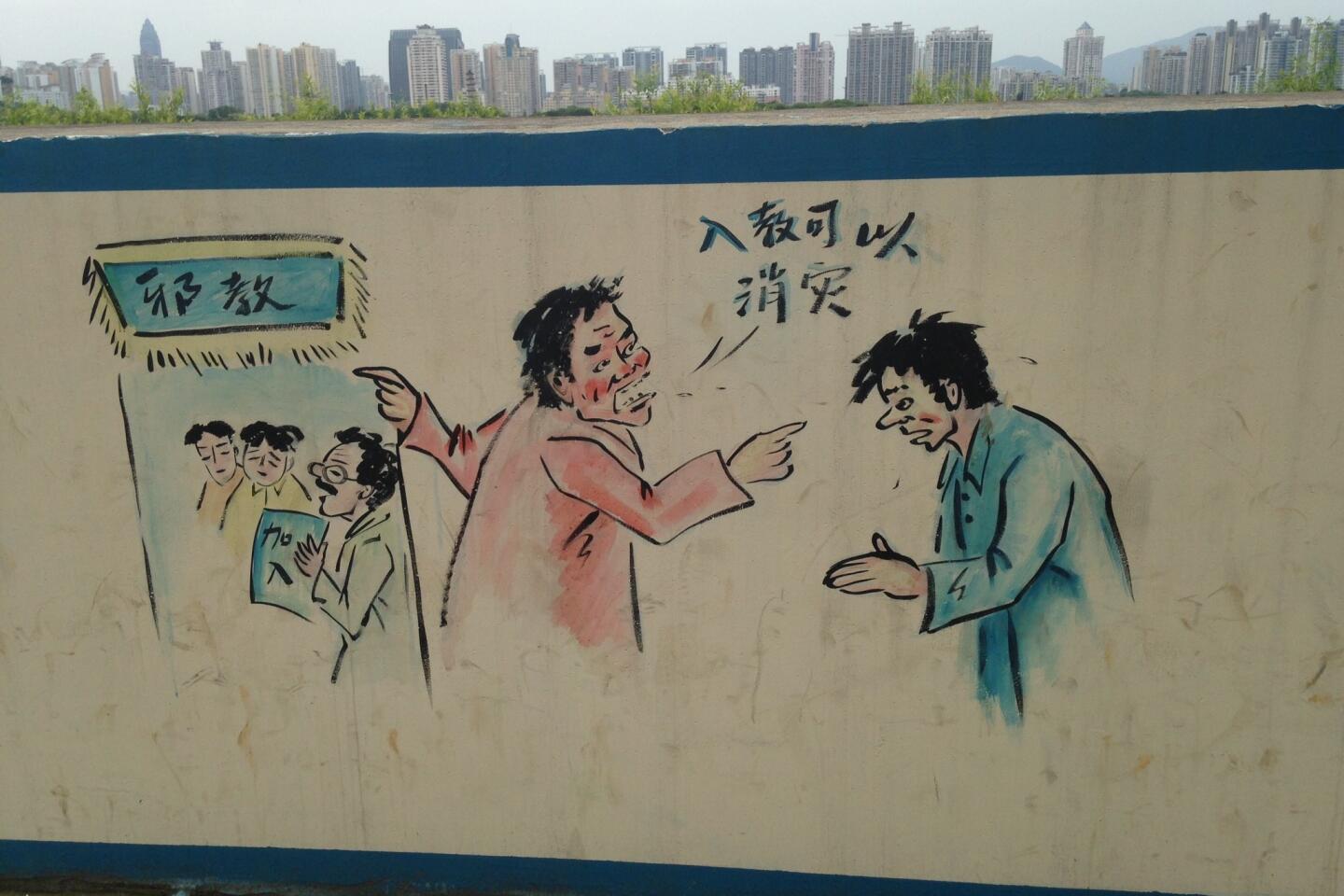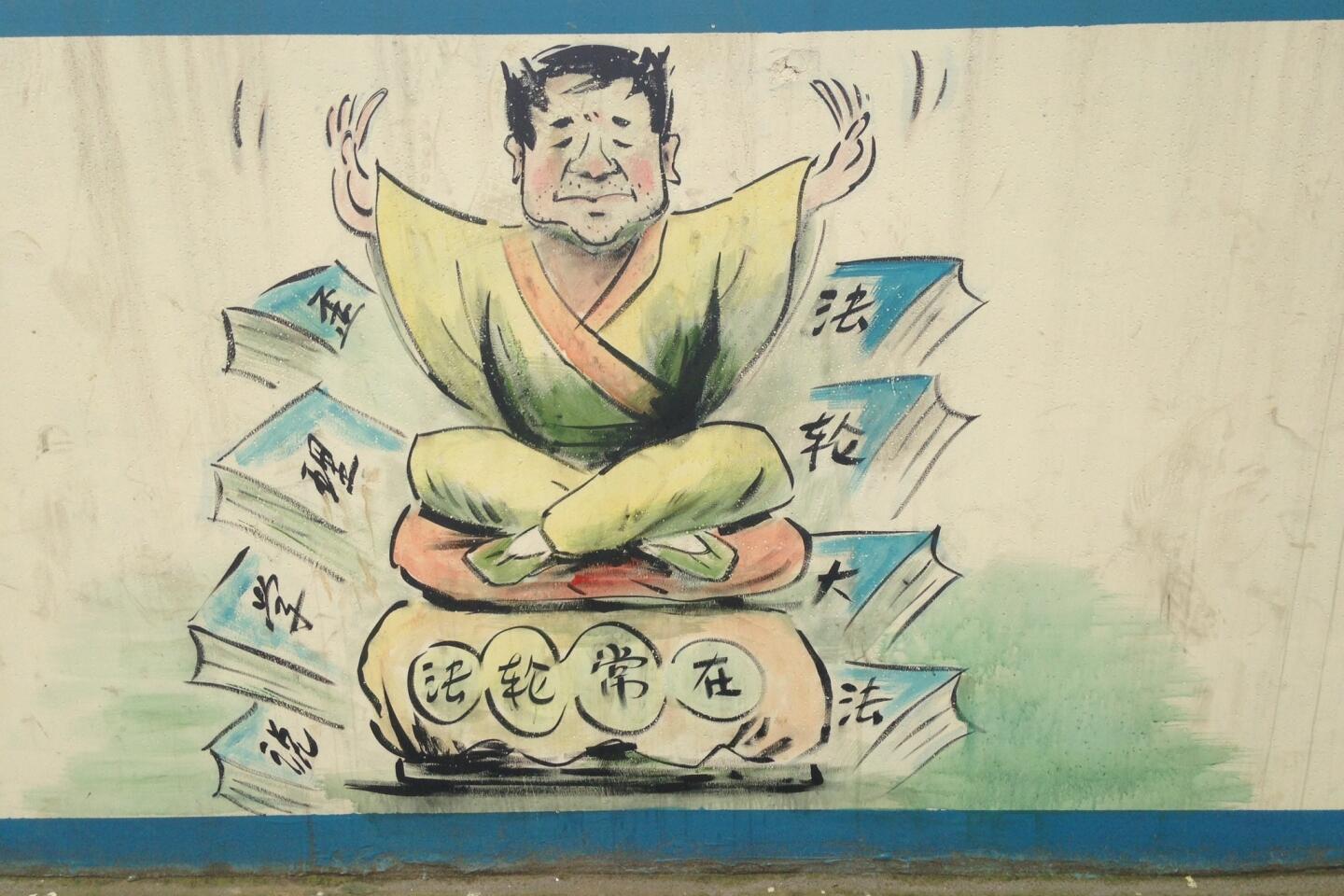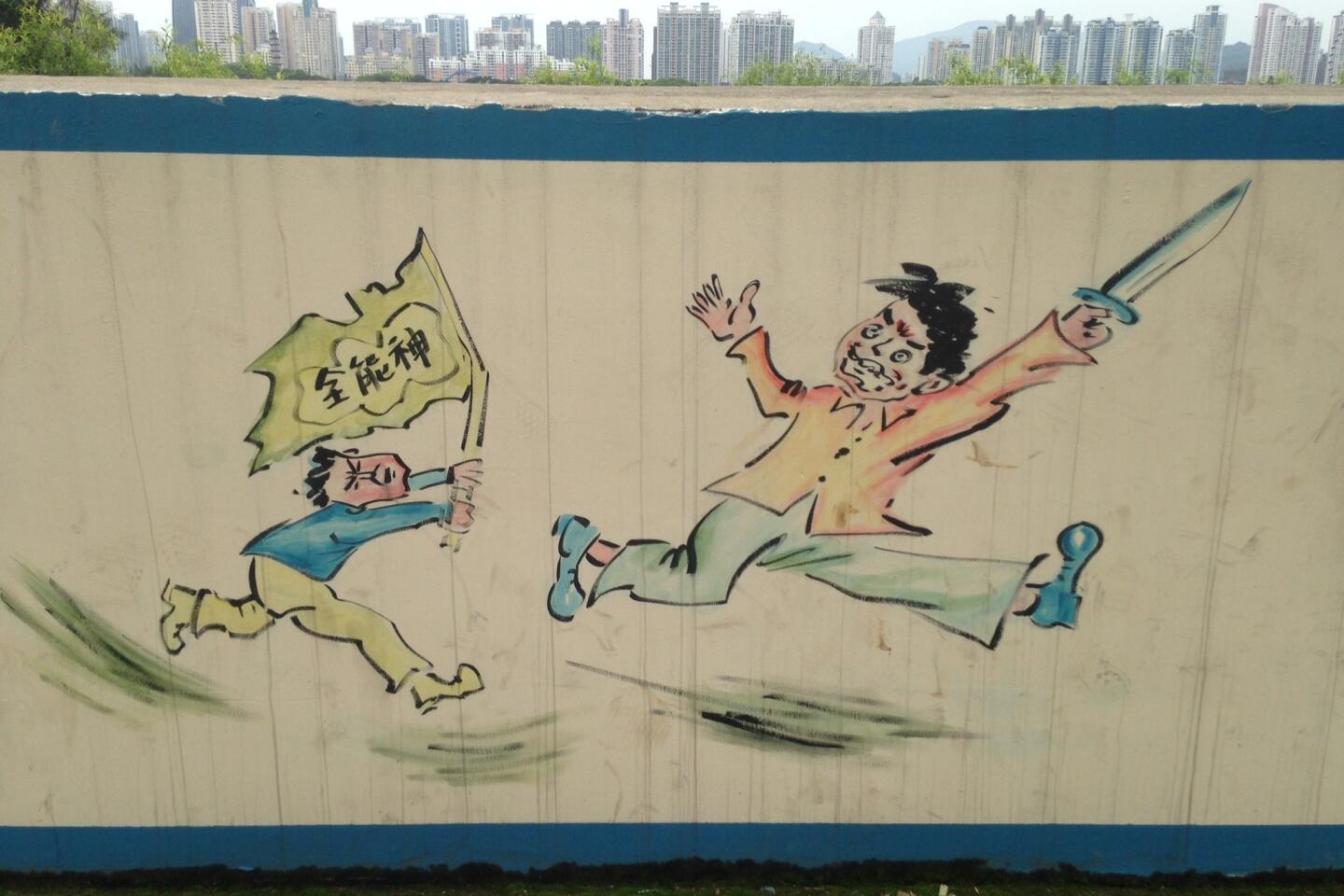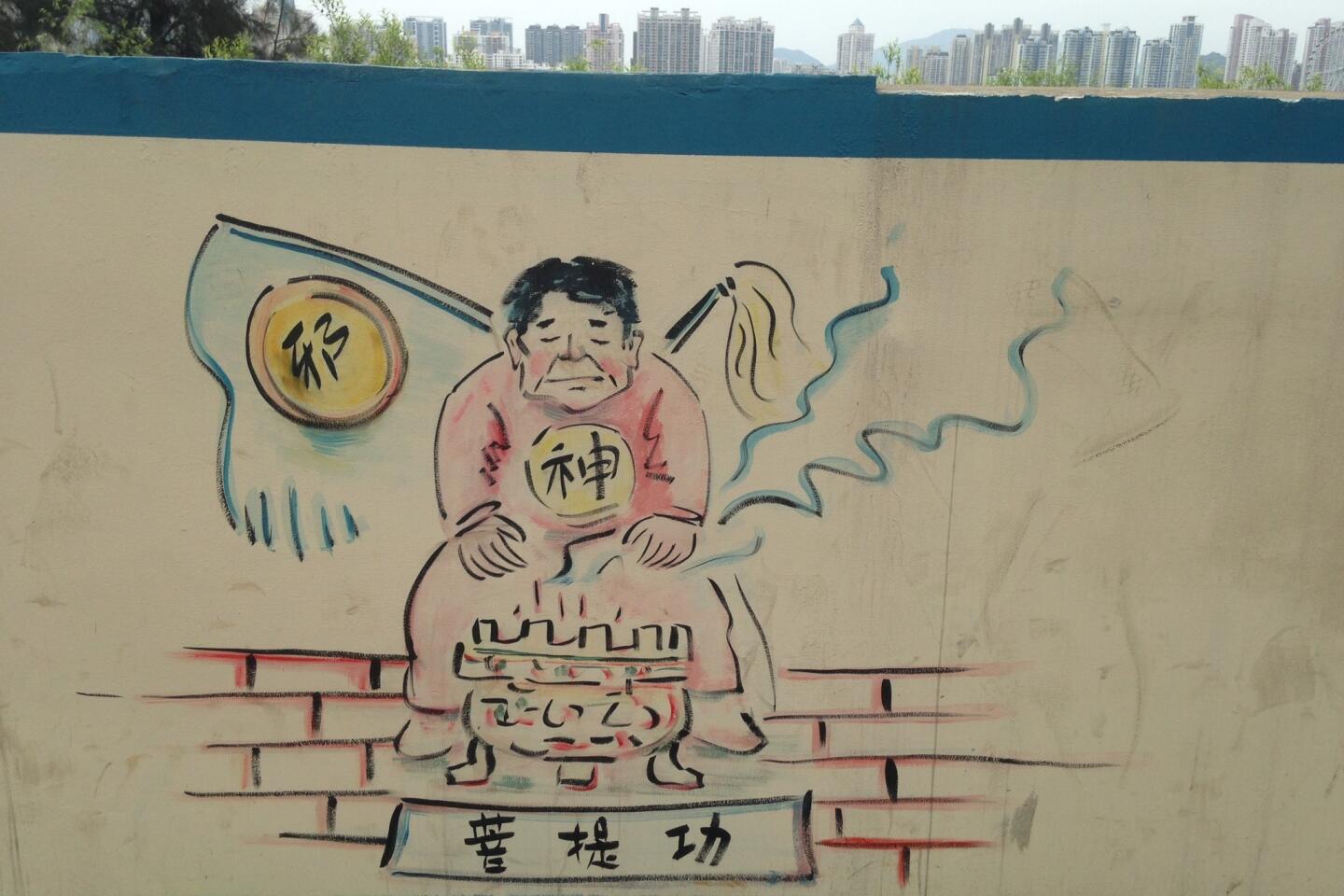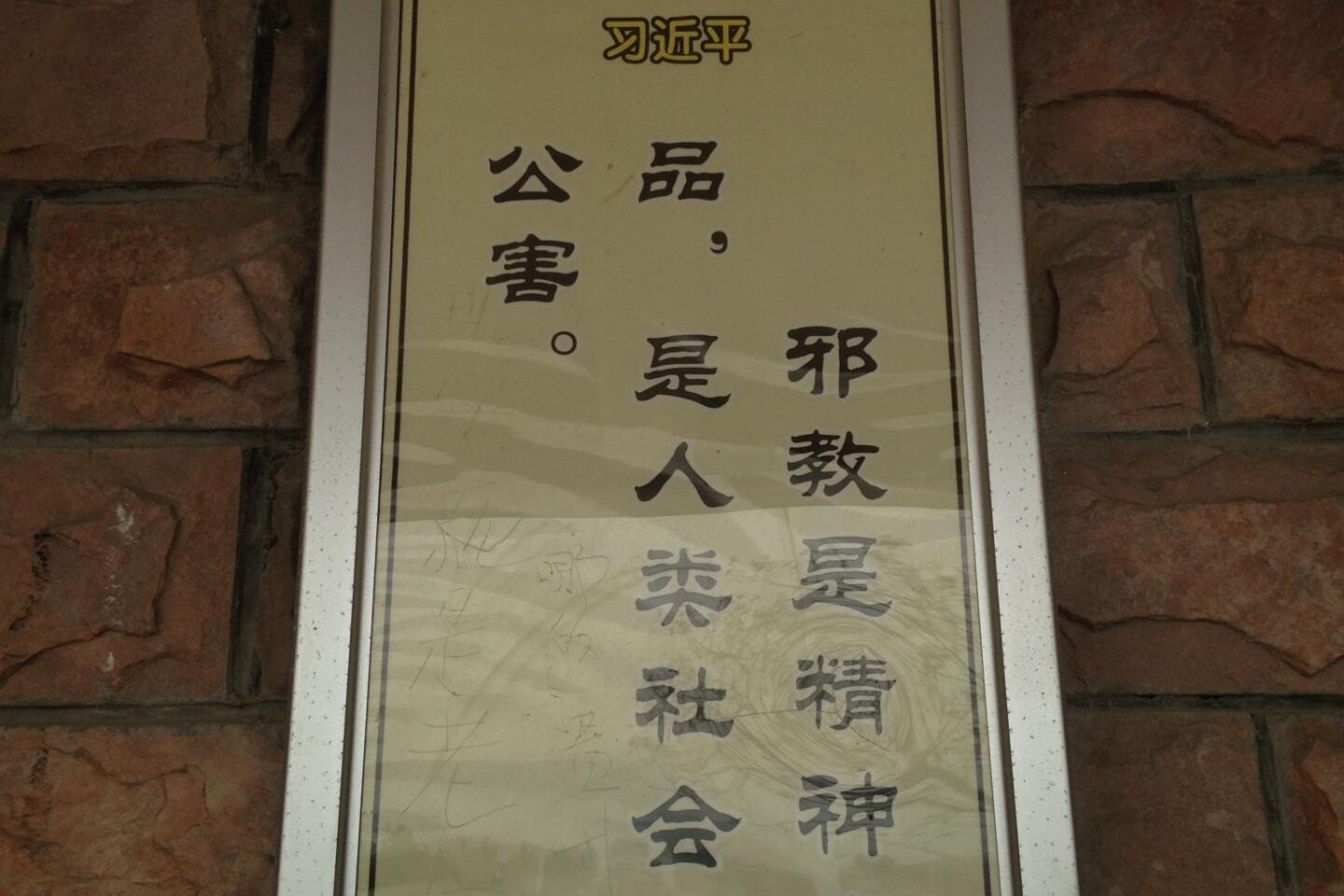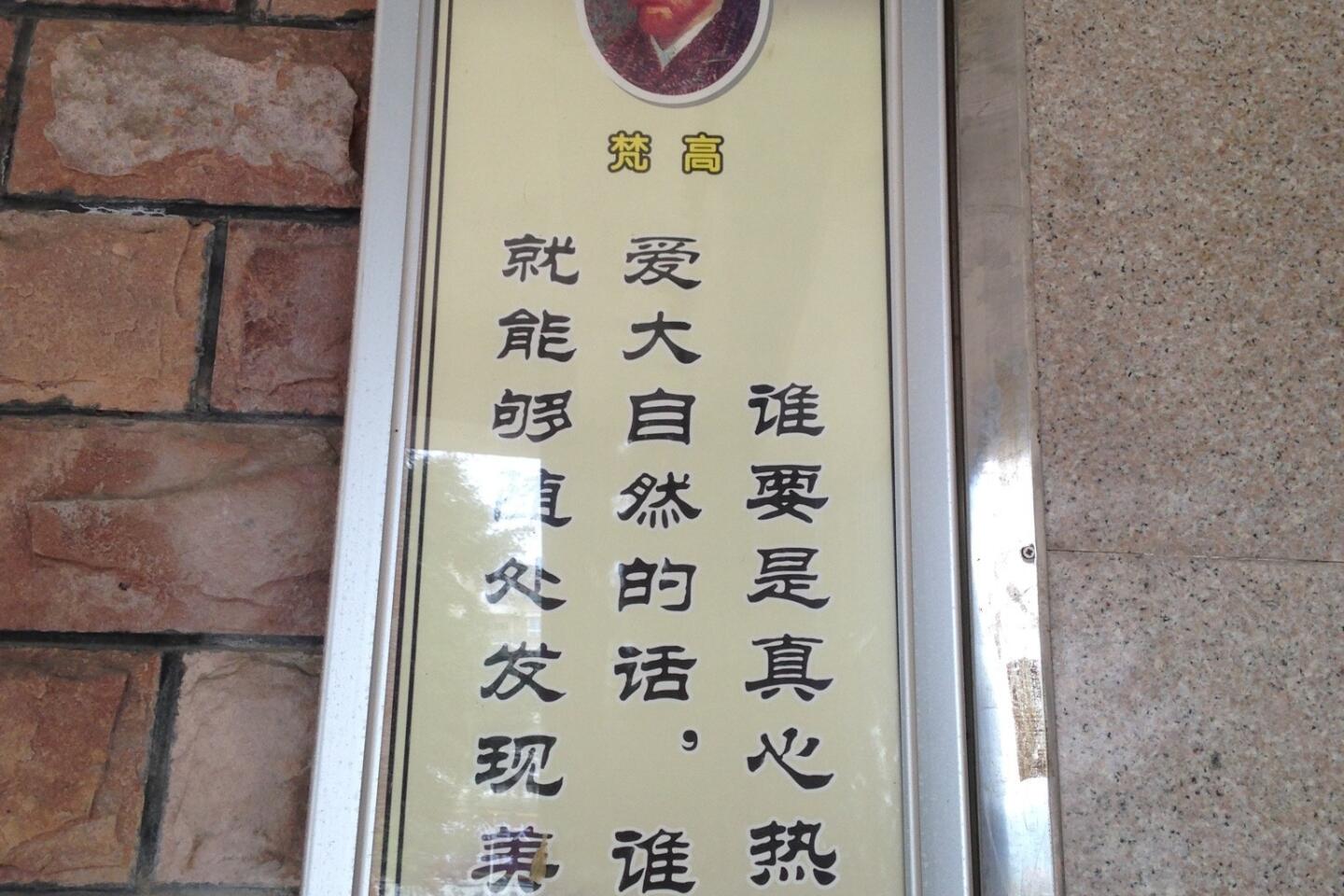In China, a park warns citizens away from cults
- Share via
Reporting from Wenzhou, China — Along the banks of the Ou River in this coastal Chinese city is a pleasant if ordinary green space that would hardly merit much attention except for the striking sign out front: Anti-Cult Theme Park.
“Worship Science,” suggests a message painted on rocks at the entrance to the park, which was dedicated in 2012 and is the work of the Yongjia County Office on Prevention and Handling of Cult Issues and the Yongjia Anti-Cult Assn.
Admission is free, and despite the name, don’t expect any roller coasters or merry-go-rounds. This is a space for exercise and indoctrination.
Within the grounds, you’ll find some jungle-gym equipment and an arc-shaped pavilion with quotes on religion and nature from famous personages – Mao Tse-tung, Albert Einstein, Vincent Van Gogh.
A long, three-part, amateurishly executed mural along the riverfront wall explains what cults are, and how and why to resist them.
China’s constitution provides for freedom of religious belief, and the state recognizes five religions -- Buddhism, Taoism, Islam, Catholicism and Protestantism -- although it restricts how groups can organize and practice.
Authorities, though, take a dim view of charismatic sects, especially those with any overseas connections. Falun Gong, for instance, a spiritual movement with roots in Buddhism and Taoism and whose leader lives in the United States, was banned as an evil cult in 1999.
In Wenzhou last week, authorities demolished a church, saying it had been built much larger than permits allowed for. But some in the city say officials fear the rise of another spiritual organization beyond its control.
“The government fears another group like Falun Gong,” said a taxi driver, who goes by the nickname A-Hai. “They had a thousand or more people at that church, and the believers there, they handled things really poorly.”
Check out the slideshow for a tour of the Anti-Cult Theme Park.
More to Read
Sign up for Essential California
The most important California stories and recommendations in your inbox every morning.
You may occasionally receive promotional content from the Los Angeles Times.
